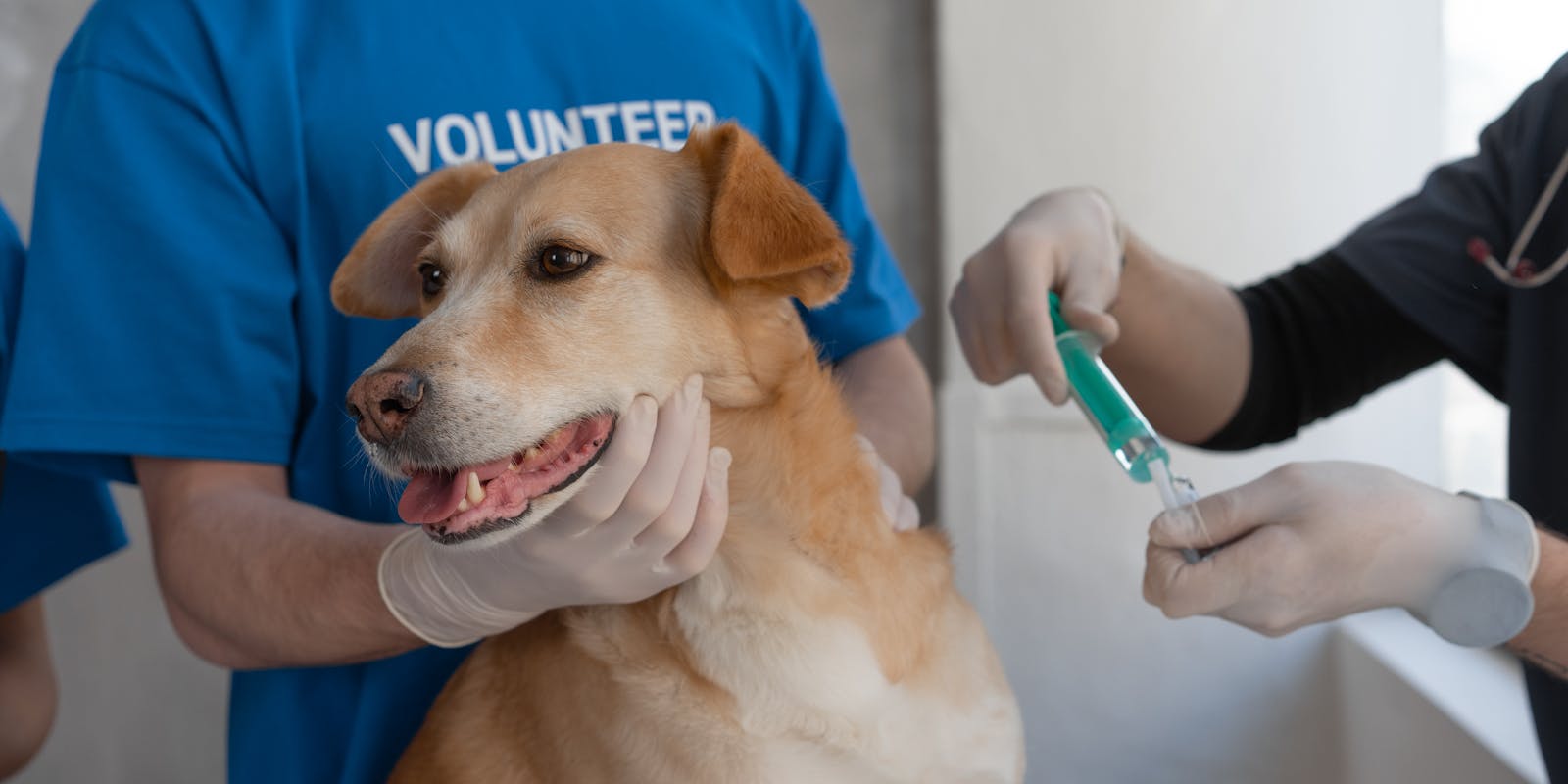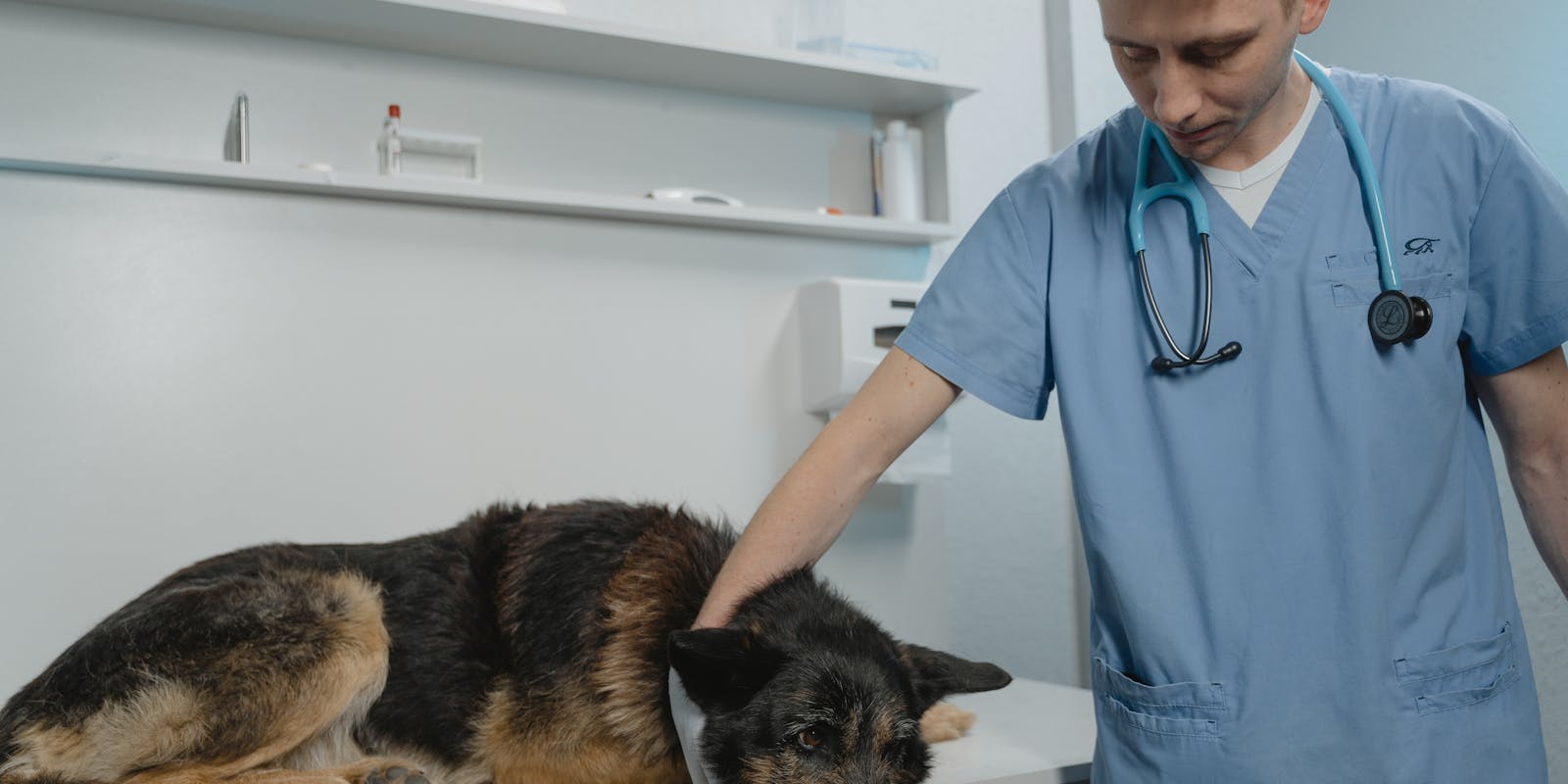Top Tips for Optimizing Your Pet's Health
Welcome to our guide on optimizing your pet's health! In this article, we will delve into the essential aspects of ensuring your furry friend's well-being and longevity. From understanding the nutritional requirements that contribute to your pet's overall health to the significance of regular exercise and mental stimulation, we will provide you with valuable insights and practical tips to elevate your pet's quality of life.
Additionally, we will highlight the importance of scheduling routine veterinary check-ups to monitor your pet's health proactively, as well as the role that preventative care plays in keeping common ailments at bay. Lastly, we will discuss the significance of creating a safe and nurturing environment for your pet, laying the foundation for a happy and healthy companionship. Stay tuned to discover how you can optimize your pet's health and ensure they thrive in every aspect of their well-being

Nutritional Guidelines for Pet Health
Ensuring your pet's health starts from within, and providing proper nutrition is key to their overall well-being. Just like humans, pets require a balanced diet to thrive and stay healthy. Here are some essential nutritional guidelines to optimize your pet's health:
1. Consult with your veterinarian: Before making any changes to your pet's diet, it's crucial to consult with a veterinarian. They can provide tailored advice based on your pet's breed, age, weight, and any existing health conditions.
2. Choose high-quality pet food: Opt for reputable brands that offer high-quality pet food. Look for options that list a high-quality protein source as the first ingredient and avoid foods that contain fillers, artificial colors, and preservatives.
3. Provide a balanced diet: Ensure your pet's diet includes a mix of proteins, carbohydrates, fats, vitamins, and minerals. A balanced diet supports your pet's energy levels, digestion, immunity, and overall health.
4. Monitor portion sizes: Overfeeding or underfeeding can lead to health issues such as obesity or malnutrition. Follow the recommended feeding guidelines based on your pet's age, weight, and activity level.
5. Stay hydrated: Always have fresh water available for your pet to stay hydrated throughout the day. Water is essential for digestion, circulation, and regulating body temperature.
6. Avoid feeding human food: While it may be tempting to share your food with your pet, many human foods can be toxic to animals. Stick to pet-specific treats and food to avoid any potential health risks.
7. Consider supplements: In some cases, additional supplements may be beneficial for your pet's health. Discuss with your vet if your pet could benefit from supplements such as omega-3 fatty acids or joint support supplements.
By following these nutritional guidelines and prioritizing your pet's diet, you can help support their health, energy levels, and longevity. Remember, a healthy pet is a happy pet!
**Exercise and Mental Stimulation for a Healthy Pet**
Regular exercise and mental stimulation are key components in ensuring the overall health and well-being of your beloved pet. Just like humans, pets need physical activity to maintain a healthy weight, strengthen their muscles, and keep their cardiovascular system in top condition.
Engaging your pet in regular exercise not only helps to prevent obesity and related health issues but also provides mental stimulation that is vital for their cognitive function and emotional well-being. Activities like daily walks, interactive play sessions, and engaging puzzle toys can keep your pet physically fit and mentally sharp.
Physical exercise should be tailored to your pet's specific needs, taking into consideration their age, breed, size, and overall health condition. For example, high-energy breeds may require more vigorous exercise routines, while senior pets may benefit from low-impact activities to prevent strain on their joints.
In addition to physical exercise, mental stimulation is equally important for keeping your pet's brain sharp and preventing boredom-related behavior problems. Enriching your pet's environment with interactive toys, puzzle feeders, and training sessions can help keep their mind engaged and prevent anxiety or destructive behaviors.
By incorporating a combination of exercise and mental stimulation into your pet's daily routine, you are not only promoting their physical health but also enhancing their emotional well-being. A healthy and happy pet is a product of a balanced lifestyle that includes both physical activity and mental enrichment
**Regular Veterinary Check-ups: A Key to Pet Wellness**
Regular veterinary check-ups are essential for maintaining your pet's health and overall well-being. Just like humans, pets require regular monitoring and preventative care to ensure they are in optimal health. These check-ups play a crucial role in identifying any underlying health issues early on, which can lead to more effective treatment and better outcomes.
During a veterinary check-up, your pet will undergo a thorough physical examination to assess their overall health. The veterinarian will check your pet's weight, heart rate, respiratory rate, and examine their eyes, ears, mouth, and skin. They may also recommend additional tests such as blood work or urinalysis to further evaluate your pet's internal health.
One of the key benefits of regular veterinary check-ups is the opportunity to catch any potential health concerns before they escalate into more serious conditions. Many illnesses and diseases can be asymptomatic in their early stages, making it crucial to have your pet regularly evaluated by a professional who can detect these issues. Early detection can lead to more successful treatment outcomes and may even save your pet's life.
In addition to preventive care, veterinary check-ups also provide an opportunity for pet owners to discuss any concerns or behavioral changes they may have noticed in their furry companions. Establishing a relationship with your veterinarian and maintaining open communication can help ensure that your pet receives the best possible care tailored to their individual needs.
By prioritizing regular veterinary check-ups for your pet, you are taking a proactive approach to their health and well-being. Investing in preventive care not only helps to keep your pet healthy and happy but can also potentially save you money on costly treatments for advanced illnesses down the line. Remember, prevention is key when it comes to optimizing your pet's health, and scheduling regular veterinary check-ups is a crucial step in that process

Preventative Care: The Foundation of Pet Health
One of the most important aspects of ensuring your pet's health and well-being is by prioritizing preventative care. Just like with human healthcare, prevention is key to maintaining your pet's health and avoiding more serious issues down the line. Here are some top tips for optimizing your pet's health through preventative care:
1. Regular Veterinary Check-Ups: Just like us, pets benefit greatly from regular check-ups with their veterinarian. These visits allow the vet to monitor your pet's overall health, catch any potential issues early on, and provide necessary vaccinations. By staying on top of these appointments, you can ensure your pet is in the best possible health.
2. Balanced Nutrition: Providing your pet with a balanced and nutritious diet is essential for their overall health. Different animals have different dietary needs, so it's important to consult with your vet to determine the best diet for your specific pet. Proper nutrition can help prevent obesity, allergies, and other health issues.
3. Exercise and Mental Stimulation: Keeping your pet physically active and mentally stimulated is crucial for their well-being. Regular exercise helps maintain a healthy weight, promotes good cardiovascular health, and prevents behavioral issues. Mental stimulation, such as interactive toys and training exercises, can also keep your pet's mind sharp and engaged.
4. Dental Care: Many pet owners overlook the importance of dental care, but oral health is a key component of overall well-being. Regular teeth cleanings and dental check-ups can prevent issues like gum disease and tooth decay. You can also help maintain your pet's dental health at home by providing dental chews or brushing their teeth regularly.
5. Parasite Prevention: Parasites like fleas, ticks, and heartworms can pose serious health risks to your pet. Preventative measures such as flea and tick prevention medications, regular heartworm medication, and proper grooming can help keep these parasites at bay. Consult with your vet to determine the best parasite prevention plan for your pet.
By following these preventative care tips, you can establish a strong foundation for your pet's health and well-being. Investing time and effort into proactive healthcare measures can help your furry friend live a long, healthy, and happy life
Creating a Safe Environment for Your Pet's Well-being
Ensuring your pet's well-being begins with creating a safe and healthy environment for them to thrive in. Here are some top tips for optimizing your pet's health through environmental safety:
1. **Pet-Proof Your Home:** Just like baby-proofing a home for a new baby, it's essential to pet-proof your living space to keep your furry friend safe. Remove any toxic plants, secure loose wires, and keep harmful chemicals out of reach.
2. **Regular Vet Check-ups:** Schedule routine check-ups with your veterinarian to monitor your pet's health and catch any potential issues early on. This proactive approach can help prevent serious health issues down the line.
3. **Provide a Balanced Diet:** Nutrition plays a vital role in your pet's overall health. Ensure you are feeding them a balanced diet suitable for their age, breed, and size. Avoid overfeeding and limit treats to maintain a healthy weight.
4. **Plenty of Exercise:** Just like humans, pets need regular exercise to stay healthy. Make sure your pet gets enough physical activity to prevent obesity and keep their muscles and joints strong.
5. **Clean and Comfortable Living Space:** Regularly clean your pet's living space to prevent the buildup of harmful bacteria and allergens. Provide a comfortable bed or resting area where they can relax and feel safe.
6. **Mind Their Mental Health:** Pets can experience stress and anxiety too. Make sure to provide them with mental stimulation, companionship, and a sense of security to promote good mental health.
7. **Stay Up-to-Date on Vaccinations:** Vaccinations are crucial for preventing diseases in pets. Keep track of your pet's vaccination schedule and discuss any concerns with your vet.
By creating a safe environment that promotes your pet's well-being, you are taking important steps towards optimizing their health and ensuring they live a long, happy life. Remember, your pet relies on you to provide a safe and loving home, so make their health a top priority
Conclusion
Conclusion:
In this comprehensive guide on optimizing your pet's health, we have emphasized the key factors essential for ensuring your furry friend's well-being. From understanding your pet's nutritional needs to the importance of regular exercise and mental stimulation, we've covered crucial aspects that contribute to your pet's overall health and longevity. Additionally, we highlighted the significance of scheduling routine veterinary check-ups and engaging in preventative care to proactively monitor and safeguard your pet's health. By creating a safe and nurturing environment, you can establish a foundation for a happy and healthy companionship with your pet. Remember, by following these top tips for pet health, you can elevate your pet's quality of life and ensure they thrive in every aspect of their well-being